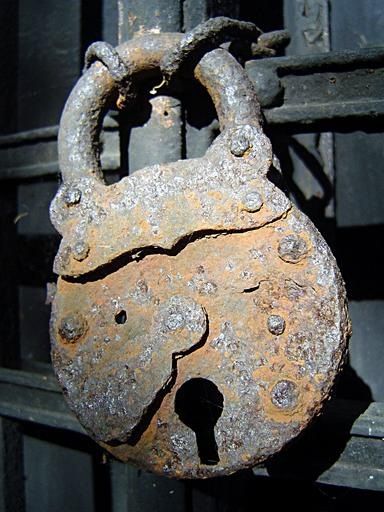FWP:
SETS
BEKHUDI: {21,6}
JALVAH: {7,4}
MIRROR: {8,3}
For background see S. R. Faruqi's choices. This verse is NOT one of his choices; I have added it myself, because Ghalib chose it for inclusion in . For more on Ghalib's unpublished verses, see the discussion in {4,8x}.
On parrots and mirrors, see {29,2}; on mirror-chambers, see {10,5}.
The idea certainly seems to be, as the commentators observe, that just as a rusty lock cannot open, a parrot who has seen the beloved's glory becomes so entranced that it cannot open its mouth-- even in a mirror-chamber, where it ought to be maximally stimulated to speak. What else is there in the verse? I can't see why Ghalib chose it for his selection, Gul-e ra'na.
In {48,2}, Ghalib introduces a combination lock, and gets much more mileage out of its 'opening' than he does here from the present lock's inability to open.

Zamin:
In the idiom khulnaa means 'to speak informally'. Mirza has this verse: {14,4}. From this, he has created the simile that the parrot in the mirror-chamber, having seen your glory/appearance, has become so self-less that like a rusty padlock it has forgotten how to open.
This simile is as uncouth as it is novel. Even if a padlock would open, would it begin to trill [like a parrot]? A second flaw is that if the tongue/mouth closed and became a rusty padlock (although Mirza has not called the tongue/mouth a padlock, he has called it a parrot), the eye that because of self-lessness remained fixed open-- what happened to it?
If he had composed the second line like this, then what a good verse it would have been: kih :tuu:tii :tuu:tii-e ta.sviir hai aa))iinah-;xaane me;N [that the parrot is a parrot in a picture, in the mirror-chamber].
== Zamin, p. 240